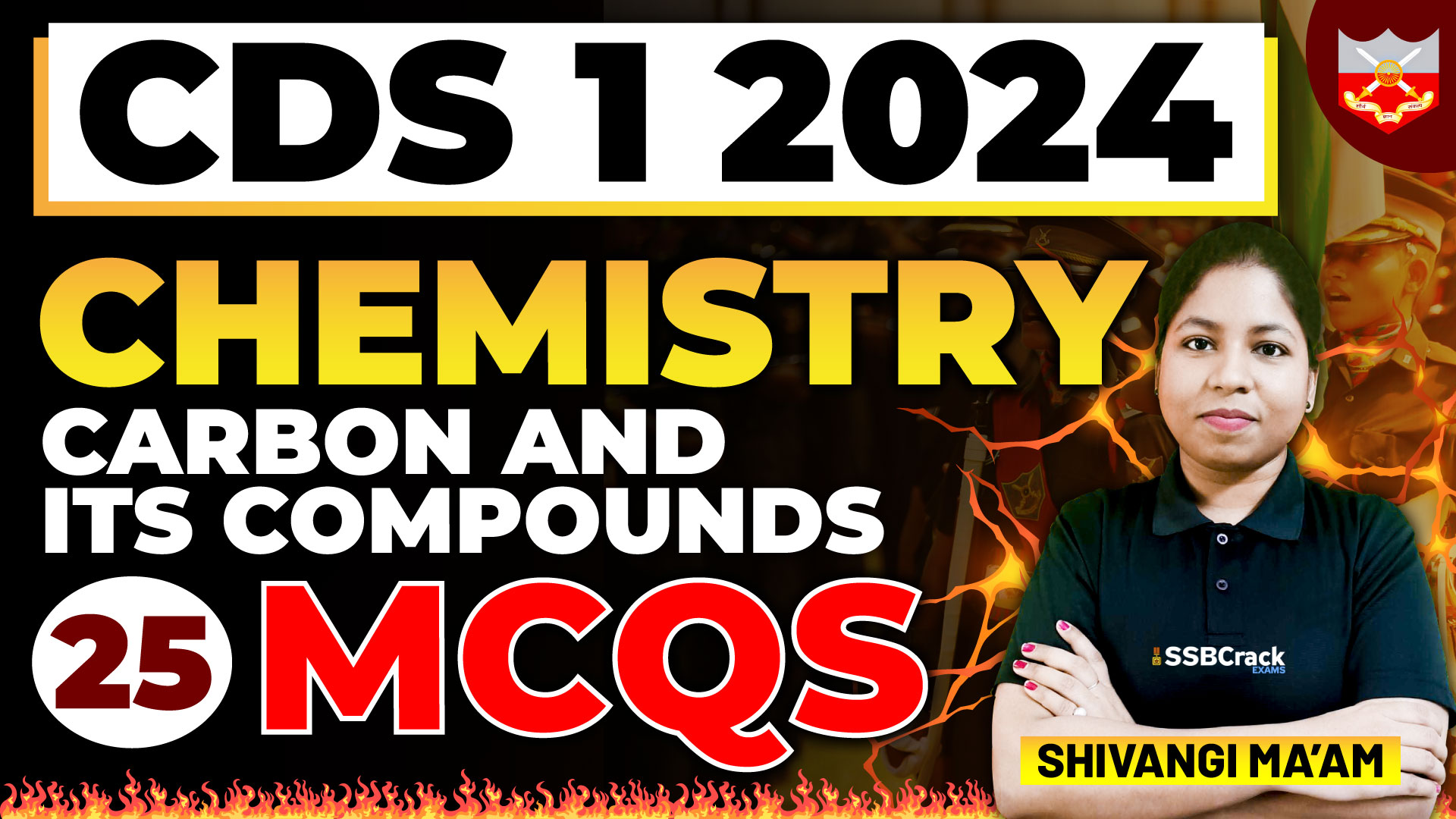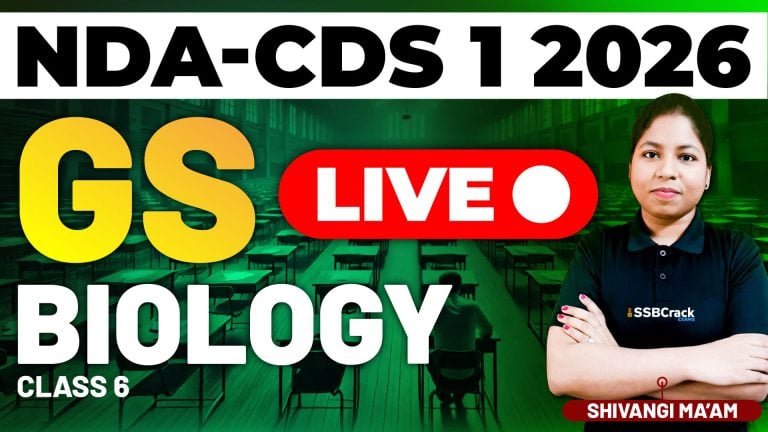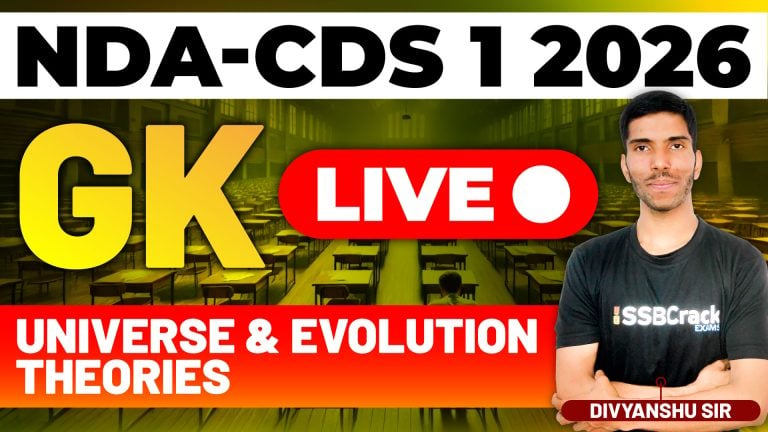The Combined Defence Services Examination (CDS) is a prestigious exam conducted by the Union Public Service Commission (UPSC) for recruitment into the Indian Armed Forces. Among its various sections, the Chemistry paper holds significant weightage. Within this paper, the section on Carbon and Its Compounds demands thorough understanding and adeptness in handling various concepts. In this article, we’ll delve into the importance of Multiple Choice Questions (MCQs) in mastering this crucial topic for the CDS 1 2024 examination.
Why Focus on Carbon and Its Compounds? Carbon is the backbone of organic chemistry, forming the basis of countless compounds essential for life and industry. Understanding carbon compounds is fundamental not only for chemistry enthusiasts but also for aspirants of competitive exams like CDS. The organic chemistry segment, which revolves around carbon compounds, tests candidates’ understanding of molecular structures, chemical reactions, and their applications in everyday life and industry.
The Role of MCQs: MCQs play a pivotal role in assessing candidates’ knowledge and comprehension levels. Here’s why they are particularly significant for mastering Carbon and Its Compounds:
- Conceptual Understanding: MCQs require candidates to have a deep understanding of the fundamental concepts. Rather than rote memorization, MCQs demand comprehension, as they often present scenarios where application of concepts is necessary.
- Time Management: CDS exams are time-bound, and efficiency in answering questions is crucial. MCQs help in improving time management skills as they require quick decision-making and the ability to sift through options efficiently.
- Coverage of Topics: Carbon and Its Compounds encompass a vast array of topics such as organic compounds, nomenclature, isomerism, reactions, and applications. MCQs are designed to cover various aspects of these topics comprehensively, ensuring a well-rounded understanding.
- Application-Oriented Learning: MCQs often present real-life scenarios or applications of chemical principles. This challenges candidates to apply their knowledge to solve problems, mimicking the situations they might encounter in their professional careers as officers.
- Identifying Weak Areas: Analyzing responses to MCQs helps in identifying areas of weakness. This feedback loop allows candidates to focus on revising and strengthening specific topics where they may be lacking.
- Elimination Technique: MCQs often provide multiple options, allowing candidates to employ the elimination technique. Even if unsure of the correct answer, one can eliminate improbable options based on knowledge or logic, increasing the chances of selecting the correct answer.
Conclusion: In conclusion, MCQs serve as indispensable tools for mastering Carbon and Its Compounds, a critical segment of the Chemistry syllabus for the CDS 1 2024 examination. By focusing on conceptual understanding, regular practice, and strategic preparation, aspirants can enhance their chances of success in this section and excel in the overall examination. Therefore, embracing MCQs as an integral part of the study routine is essential for achieving one’s desired goals in the CDS examination and beyond.
Carbon And Its Compounds MCQs
- Buckminster Fullerene Is An Example Of _ Of Carbon.
A. an isomer
B. an isotope
C. an allotrope
D. More than one of the above
ANSWER: C - The Arrangement of Carbon Atoms in Diamond Is.
A. Regular Hexagons
B. Tetrahedral
C. Pentagons
D. More than one of the above
ANSWER: B - Which Of the Following Is the Hardest Substance Known?
A. Buckminster fullerene
B. Diamond
C. Graphite
D. Iron
ANSWER: B - When Carbon Dioxide Dissolves In Water, It Gives______?
A. Citric Acid
B. Carbonic Acid
C. Sulphuric Acid
D. Acetic Acid
ANSWER: B - Chemistry Of Carbon Compounds Is Known As __.
A. Biochemistry
B. Physical chemistry
C. Inorganic chemistry
D. Organic chemistry
ANSWER: D
For More MCQs On This Topic Refer To the video & Attached PDF







